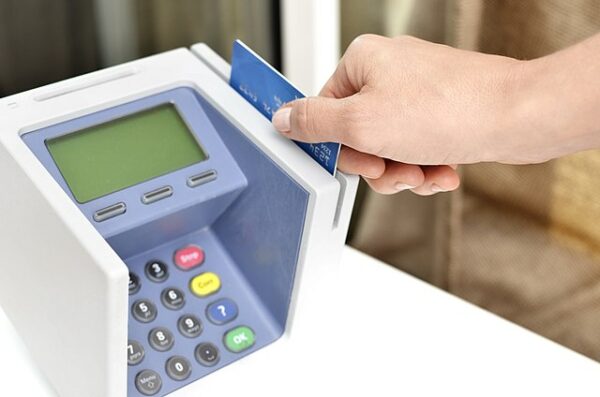In one of the more disturbing signs about the state of our economy and the impact of inflation on regular Americans, a LendingTree survery recently revealed that 21 percent of those utilizing “by now, pay later” apps are using them to pay for basic needs, such as groceries.
The website writes, “Buy now, pay later (BNPL) loans aren’t only for fancy shoes, kitchen appliances and gaming systems. Millions of Americans use these loans as lifelines.
The newest LendingTree survey finds that 27% of BNPL users say they use these loans as a bridge to their next paycheck, which can help them make ends meet amid rampant inflation, rising interest rates and headline-making layoffs. The loans are also being used to purchase basic necessities. Case in point: 21% of BNPL users say they’ve used one of the loans to buy groceries.”
Inflation for staple groceries has continued to rise.
LendingTree continued: “More than half of users — including almost two-thirds of Gen Zers — say they’ve regretted a BNPL-financed purchase, and 40% of these users have paid late on one of the loans.
Despite those warning signs, BNPL use is still on the rise, with 46% of Americans saying they’ve used one of the loans — up from 43% a year ago. That growth has led other companies to jump in the fray alongside BNPL firms like Klarna and Afterpay — including Apple, which introduced Apple Pay Later in late March. However, the meteoric growth in BNPL popularity and usage of these loans in recent years appears to be slowing.”
The COVID-19 pandemic saw a boom in BNPL loans. Bloomberg reported that “five of the main lenders in the US originated loans worth $24.2 billion in 2021, up from $2 billion in 2019, according to the Consumer Financial Protection Bureau (CFPB). The model typically allows buyers to spread payments out evenly without accruing interest, making it an attractive alternative to credit cards, with US interest rates at their highest level since 2007. More players are getting in, with Apple Inc. introducing Apple Pay Later last month.
Consumers can open accounts quickly—often while checking out in a store or online—and are often required only to undergo a soft credit check that doesn’t affect their credit score. Americans are using BNPL to pay for almost everything from clothes and electronics to groceries and even guns.
But it can turn from a convenience to a catastrophe, especially if users fall behind on payments and allow late fees to pile up, which does hurt their credit score. That’s particularly dangerous to younger consumers and people of color, who tend to have less wealth to begin with. “You are putting yourself into the cycle of debt that would be very difficult to get out of,” says Terri Bradford, a payments specialist at the Federal Reserve Bank of Kansas City.
A $400 purchase can snowball if consumers don’t fully budget for upcoming payments. Marco Di Maggio, an economist at Harvard Business School who has studied BNPL, says such programs may encourage shoppers to spend more at checkout. “They tend to see it as a $100 purchase, and they forget about the other $300—that’s what puts them in trouble,” he says.
Stories about the upcoming BNPL problems come as traditional credit card holders are also struggling to pay their debt. Reuters noted, “Consumers are starting to fall behind on their credit card and loan payments as the economy softens, according to executives at the biggest U.S. banks, although they said delinquency levels were still modest.
‘We’ve seen some consumer financial health trends gradually weakening from a year ago,’ Wells Fargo Chief Financial Officer Mike Santomassimo said on a conference call Friday discussing the bank’s first quarter results.
Worsening economic conditions would lead to ‘credit deterioration throughout 2023 and 2024 with losses eventually surpassing pre-pandemic levels given an oncoming recession,’ predicted UBS analysts led by Erika Najarian. Still, loan defaults are forecast to stay “below the peaks experienced in prior downturns,’ they said.
As large and medium-sized lenders become more conservative in underwriting, their net charge offs will probably to peak in several quarters, wrote Morgan Stanley analyst Betsy Graseck. ‘This means slower loan growth” in 2023 and 2024, she wrote.”
[Read More: Portland Has Become A Business Disaster Area]



